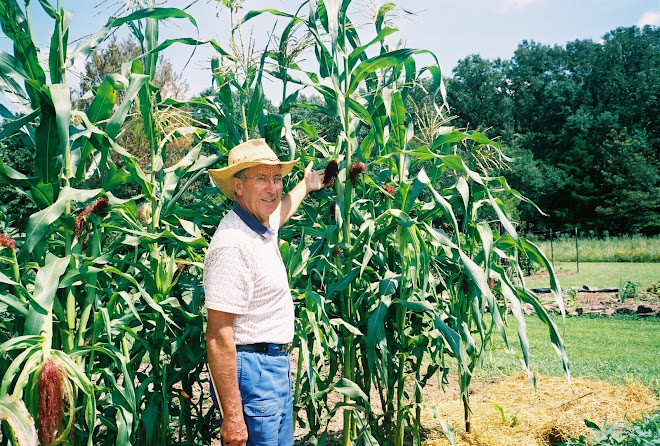Heirlooms: If you have been a vegetable gardener for a long time, some old, standard varieties of seeds will likely come to mind. Detroit Dark Red Beets, Early Jersey Wakefield Cabbage, Danvers Half Long Carrots, Country Gentleman Sweet Corn, Oak Leaf Lettuce, and Brandywine Tomatoes are likely to be on your list of known varieties. These listed varieties all have one thing in common. They were all selected and named in seed catalogues in 1900 or before. They all result from plants that are randomly, open-pollinated (not deliberately crossed as in hybrids), and were likely in certain families and local localities for many years before introduced for sale. We call these kinds of seeds "heirlooms," and there are thousands of them listed in seed catalogues and in seed storage facilities, and many more still unnamed. They are a valuable genetic resource for the present and for future generations
.
Hybrids are simply the result of deliberate crossing of certain selected lines. They are the result of natural breeding processes that have been used for thousands of years. Hybrids are generally not as broadly adapted (narrower genetic base) as open-pollinate, heirloom varieties, but they can have some very desirable characteristics. They are often promoted for their disease resistance potential. Hybrids are acceptable in the USDA certified organic grower's program.
GMOs: While one could say that hybrids are genetically modified seed, in today's lexicon, Genetically Modified Organisms (GMOs) refers to DNA material that has been randomly inserted into a species, at the cell level. The procedure has only been used commercially for the last ten years. It is highly mutagenic and routinely breeches genera barriers. In the USDA organic certification program, the GMOs are NOT allowed.
Why the opposition to GMOs in the organic certification program? There are three major reasons for the opposition. The GMO crops have not been fully tested for their propensity to invade and affect other plant species in the environment in which they are planted. Second, they have not been tested for ability to effect human health. And third, where planted they impose a threat to polluting open-pollinated and heirloom varieties. This is an issue of major social injustice by big seed and chemical companies "invading" developing countries with GMOs and contaminating their long-standing, reliable native varieties. The relatively poor and helpless farmers and peasants are at the mercy of the invading companies. The video, "The Future of Food" explains this very well. Watch too for a movie coming soon called "Food, Inc."
Of course there is controversy on the issues. Big companies advocate that they can feed the world through higher production yields with GMOs. The Union of Concerned Scientists analyzed 12 studies and indicates otherwise. To paraphrase, "The several thousand field trials over the last 20 years for genes aimed at increasing operational yields of major food/feed crops show no increase in yield with the exception of Bt corn."
Perhaps the most direct effect of GM food is how they might influence human health. The studies to verify that GM foods are safe for humans have not been done. Many studies have been done on animals and the results are scary. Serious health risks associated with GMOs include infertility, immune dysfunction, accelerated aging, protein formation, and changes in the liver, kidney and spleen. It is clear that there is much more to food safety than just the nutritional quality. The American Academy of Environmental Medicine is very concerned about this safety issue and has just released a position paper stating, "Because of the mounting data, it is biologically plausible for Genetically Modified Foods to cause adverse health effects in humans." Among several items, they are asking, "Physicians to educate their patients, the medical community, and the public to avoid GM foods when possible and provide educational materials concerning GM foods and health risks."
Consumers can hardly avoid eating some GM foods today. Much of the corn, rice and soybeans grown today is derived from GMO seed. You can minimize GM food intake by sticking to organic products, buying locally and growing your own vegetables. More and more folks are doing just that.
For those wanting to see the studies referenced, see aaemoonline.org/gmopost.html.

